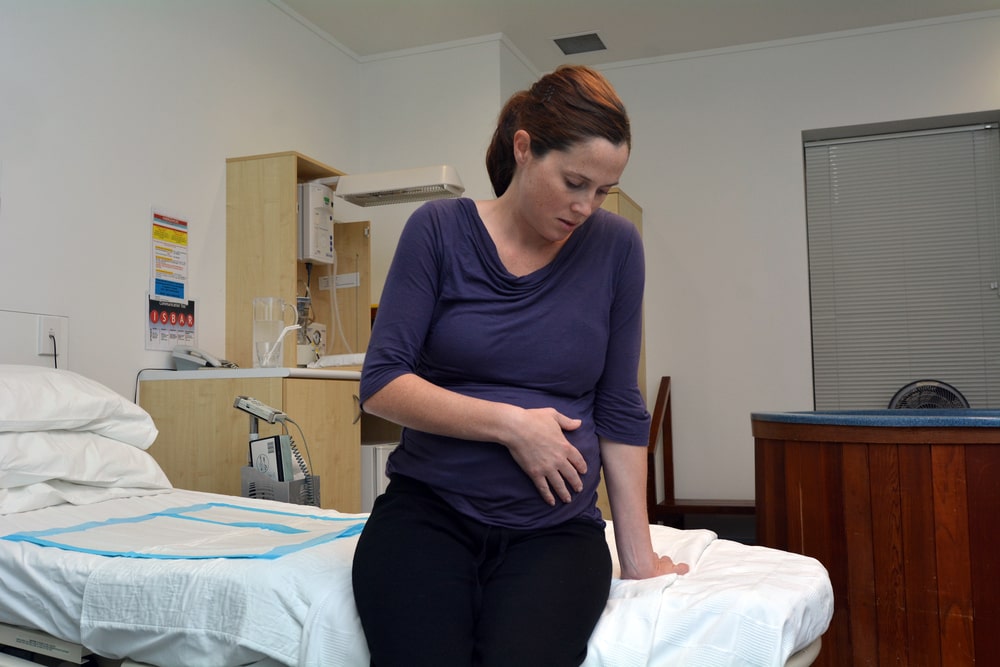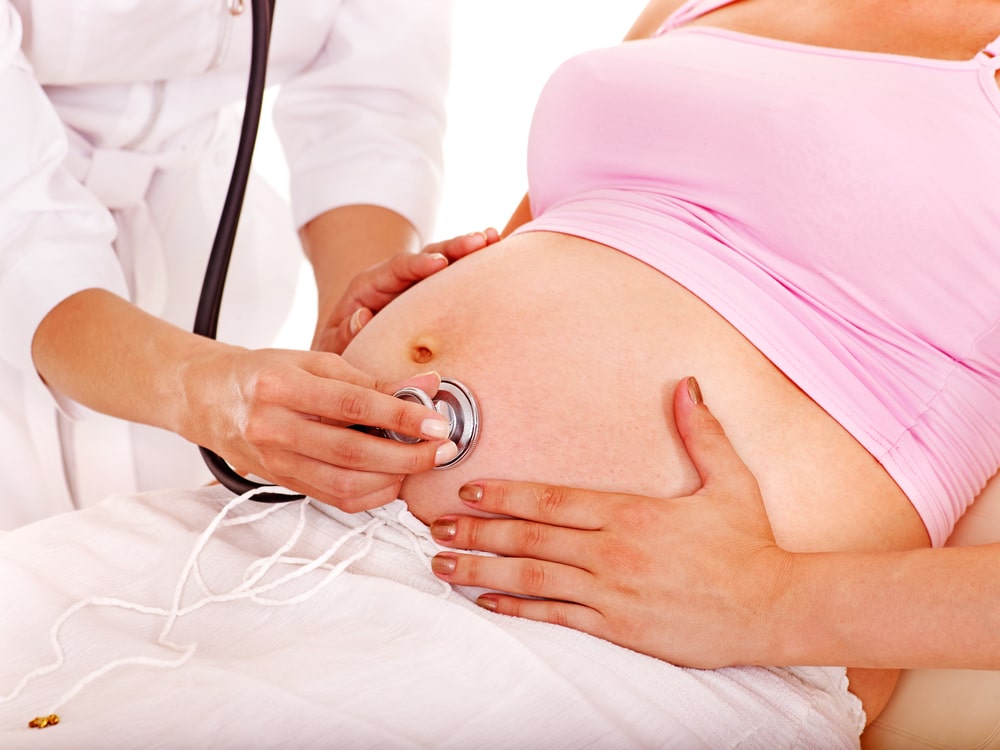The joys of finding out about your pregnancy quickly turn into the joys of feeling your little one move inside your belly. Finding out you’re going to have a baby is an incredible time for every mother.
Yet, one thing that never stays the same, whether you’re new to having kids or this is one of your subsequent pregnancies, is all of the little details of the experience. The details of each pregnancy are always changing.
Sure, there will be patterns that stay the same with having multiple pregnancies, but the way you feel, how your baby moves inside of you, and the food you crave all seem to change with each pregnancy.
Many mothers will question every twinge, kick, or movement throughout their pregnancy. This is a good thing because a curious mother is a good mother.
A common question among new mothers is the question of why their baby moves in the form of shaky or twitchy type movements while in the womb.
Rapid Shaky or Twitchy Movement is Unsettling to Some Pregnant Mothers
It might even be quite unsettling for some women who feel rapid or shaky movements coming from their baby during pregnancy.
These types of movements have even been described as ‘feeling like your fetus is having a seizure’. It’s natural for mothers to wonder why these movements happen.
Do you ever need to worry about rapid movement coming from your baby during pregnancy? Let’s see what other mothers and baby experts have to say about quickened movement coming from your fetus.
A Fetus Moves a Lot and Can Feel Like They’re Having a Seizure, Twitching, or Shaking in the Womb
It’s no doubt that your baby will move in sporadic and random ways while they grow in your womb. So if you’re reading this, you must be wondering why your fetus moves this way at all.
Mothers start to feel their fetus move anytime between 16-25 weeks, the sensations of quickening can cause many women to have questions about what exactly they’re feeling.
It can be unsettling to feel like your fetus is having a seizure or moves in extremely twitchy patterns. It’s understandable to want to know what’s going on inside you. You aren’t at all used to these random sensations coming from your womb.
View in gallery
So, if you’ve ever been pregnant before or are pregnant now, it makes complete sense why the movements of a baby inside your body could be concerning or questionable.
Thankfully, you aren’t the only one who has been through this before, there is even scientific research that has been done on fetal movements.
Let’s go over what’s normal and what is not normal when it comes to fetal movement.
When your fetus feels like they’re having a seizure try to remember that movement is a good sign
Every time you question whether your baby is okay or not, try and remember that any movement coming from your baby is a good sign. All those shakes, twitches, and quivers are more than likely a sign of good health than a reason to be concerned.
That said, there is an extremely rare condition that causes fetal seizures, it stems from a congenital anomaly. Aside from your baby having a congenital anomaly, a fetus generally cannot have a seizure.
If your fetus is at risk for seizures your obstetrician will mention this to you during a prenatal checkup.
Here are the most common reasons your fetus might move quickly or in a twitchy pattern
Being a concerned mother means that knowledge is your greatest weapon to soothe the anxiety you’re experiencing about the way your baby is moving in your belly. Below are some of the most common ways babies move inside their mother’s womb.
Babies get hiccups all the time in the last few trimesters of pregnancy
At some point in the third trimester, you will feel your fetus get the hiccups for the first time. This could come with sensations that are twitchy, rapid, and seizure-like when it happens.
Some babies will get hiccups for an extended period of time, they might feel like your baby keeps having seizures.
Don’t feel bad if you feel the need to call your midwife or obstetrician when your baby gets hiccups for the first time, especially if you’re feeling anxious.
No one is going to make you feel bad for feeling concerned about your baby, you might be totally new to every sensation happening in your womb.
View in gallery
A relaxed mother is a key to a good healthy pregnancy. Professionals are there to answer any question you might have, no matter how silly it might sound.
When a fetus stretches, they seem to move pretty quickly
Your fetus is just going to keep getting bigger as they grow, so once your baby reaches a certain size, when they stretch it can start to feel like a ton of twitchy movements all at once.
This rapid spew of movement when your baby is stretching is because of all their sudden kicks, punches, and rolls that happen along with their stretching.
In my recent pregnancy, my baby boy would literally tickle me from the inside. When he’d stretch out, all of his kicks, punches, and rolls felt so strong it tickled me as he got bigger.
Anytime he would stretch I wondered if he was okay or not. When your baby stretches out it can feel intensely sporadic with random twitchy movement occurring all at once, this kind of movement can resemble a seizure – causing concern for you.
Braxton hicks contractions cause babies to move a lot
Braxton hick contractions are your body’s way of practicing for real labor contractions, the uterus tightens when they happen. Many women have said that right before Braxton hick contractions occur that their baby will have a lot of movement all of a sudden.
Pay attention to the timing of the movement your baby has made when you’re concerned about it. If the movement from your fetus happens right before a Braxton hick contraction, it’s likely happening because they are reacting to your uterus tightening up.
Either your baby can react to your uterus tightening, or they can make your uterus have a Braxton hick contraction from all of their movement.
Braxton hick contractions usually happen if you’re dehydrated, doing a lot of physical activity, or you are getting closer to delivery.
If you have a day with a lot of Braxton hick contractions, try to take it easy and drink more water. It should slow all of the extra movement down, and help you relax a bit about any concerns you’re having.
While your fetus’s nervous system is developing, they move more frequently in twitchy ways
View in gallery
Your baby’s nervous system starts to develop around day 16 after conception, this is also the time when the neural platform of your baby’s nervous system begins being laid. This is seen as the foundation of a human’s nervous system.
These special neural plates will develop to an incredible extent to later become your baby’s spinal cord.
Eventually, the neural plates grow longer and will fold into what becomes your baby’s first nerve morph, then, that morph evolves into a tube – which finally becomes the spinal cord.
Your baby’s nervous system is complex but necessary
The nervous system of a growing fetus is interesting and complex, to say the least, the main components it contains are; the cerebrum, the cerebellum, a brain stem, the pituitary gland, and a hypothalamus.
Each of these five components of your fetus’s brain plays an important role in all things pertaining to physical health, like their motor movement, coordination, and all future events in their development.
You can bet that some of the rapid movements you feel your fetus make that resemble a seizure, are due to the healthy development of your baby’s nervous system.
Be sure to ask your obstetrician what part of growth and development is happening this week for your baby.
There are pregnancy tracker apps that are fun and useful that help you see what big developmental leaps your baby is making. It helps to visualize the size of your infant when trying to determine the cause of the movement in the womb.
Babies move rapidly when they need to move their umbilical cord off of them
Another theory amongst the parenting community is that when a baby moves quickly all of a sudden, it’s probably because they are trying to move their umbilical cord off of their foot – causing a bout of rapid movement.
Babies are sensitive to react when they feel any type of sensation in the womb, so when your baby starts kicking more all of a sudden, it could mean that they just felt their umbilical cord and are trying to move it away.
Sometimes the umbilical cord will actually wrap around their feet or arm, causing them to kick and punch in a flurry to push it off.
What you will feel on the inside or the outside of your womb will be a bunch of twitchy movements, this might be concerning to you at the moment since you’ll have no idea why they are moving so quickly all at once.
Your uterus might be irritated and cause your baby to move more
View in gallery
Having an irritable uterus feels similar to having Braxton hicks contractions except you will experience contractions more often. The contractions that happen from an irritable uterus are sometimes more painful than Braxton hick contractions are.
A lot of women mistake an irritated uterus for real labor and ask to be seen by their health care provider. The frequent bouts of contractions oftentimes cause your baby to kick and move more rapidly as well.
Your fetus will feel the extra contractions and move along with the contractions, on the outside wall of this movement will feel almost like your baby is having a seizure.
The movements from your baby and the false contractions of an irritated uterus together have been confused by many mothers – sometimes an irritated uterus will send mothers to the birthing center questioning if their baby is okay.
If you think this might be the case for you, it’s always best to have your contractions monitored at the birthing center to see if your contractions need to be stopped.
Sometimes if your uterus is irritated it can develop into early labor – in the case of early labor prior to 37 weeks you will need to attempt to have your labor stopped.
You Can Manage Contractions Before 37 weeks Right At Home and Try to Stop Them
If you are experiencing contractions before 37 weeks a series of tests will be performed to determine what needs to be done next.
Doctors will perform tests with a soft belt that is sensitive to the pressure of contractions which will give doctors the information they need about the length, strength, and duration of your contractions.
How Is An Irritable Uterus Treated?
If you think that you have an irritated uterus, you can begin treatment right at home to see if it will calm down before heading to the hospital.
If the at-home measures don’t make any difference you should call your midwife or obstetrician to ask where to be seen further.
View in gallery
If your uterus seems irritated, ensure you do the following
- Sleep well even if your contractions are distracting
- Don’t lift anything heavy this can cause more contractions
- Eat healthy meals that are small often
- Drink plenty of liquids and especially water to stay hydrated
- Don’t drink caffeine this can further dehydrate you and cause contractions from the stimulation of caffeine
- Magnesium is a supplement you can take to relax the muscles of the uterus
- Avoid stress if possible since this can bring about early labor
It’s More Concerning For Your Baby to Stop Moving Than It is To Have Bouts of Rapid Movement
A fetus who all of a sudden stops moving is far more concerning than a baby continuing to have rapid movement. If your baby stops moving it could mean that your baby has stopped moving to conserve energy.
If you’re feeling concerned with the movement or lack thereof coming from your baby, then you can perform a fetal kick count. A kick count is when you diligently count the number of kicks coming from your fetus in a few hours.
Figure out a quiet time to perform a kick count
Decide on a quiet time that you can relax and sit for a bit to fully focus on the movement in your belly. If your baby kicks or moves 10 times or more within a 3-hour timeframe, there’s nothing to worry about.
If your baby moves less often than 10 times in 3 hours, you should call your obstetrician to see if there is any cause for concern, or if you need to be further evaluated.
Oftentimes it’s no problem to get monitored in a birthing center for an hour to be sure that you and your baby are doing okay.
When you sit down to count the number of times your baby is moving around, have a snack and some water to help your body relax so you can get a good sense of how your baby is doing.
Don’t Stress Out Until You Have Been Further Evaluated
There were many times around the end of each one of my five pregnancies that I would stress out, thinking that my fetus wasn’t moving enough, especially when I was having a lot of Braxton hicks contractions.
View in gallery
I would get pretty stressed out, call my midwife, and then rush to be evaluated at the birthing center. And while at that time it was a good choice for me to be evaluated since I was so stressed at the time.
If I could go back and tell myself one major piece of advice, I would tell myself to not stress until I was given more information about the state of health that my baby was in instead of just stressing based on my assumptions.
There’s no reason to go into a state of deep distress from worrying about your fetus when it’s likely that your fetus will turn out to be perfectly healthy.
It’s always best to seek further advice if necessary, then form a plan with your care provider based on what you find out after the tests are performed to monitor your contractions.
What You Eat Affects The Way Your Baby Moves
If you’re a first-time mom it might not be very obvious that what you eat affects the way your baby moves.
If you drink coffee you can expect that your baby will be quite a bit more active, the caffeine in coffee tends to make babies move in a more rapid way.
Cold drinks are another reason that your baby might move in a more twitchy manner than what you’re used to feeling coming from your baby.
Pay attention to what you eat or drink right before your baby has a period of high activity.
In Conclusion
All the little movements your fetus makes during your pregnancy is an important thing to pay attention to, but sometimes it can be concerning the way your baby is moving, especially when the movement feels similar to a seizure.
Many new mothers will wonder if the movement they feel coming from their fetus is something to worry about or not.
The truth is that 9 times out of 10 your fetuses’ movement is nothing to be concerned about. There are so many reasons your baby will move in rapid patterns while in your womb that turns out to be harmless.
That said, there are extremely rare occasions when your fetus could have a seizure, but this is usually due to a medical reason that your doctor will inform you of if this is the case for your pregnancy.
If you’re still concerned with the way your baby is moving after reading this article, give your health care provider a call – they are here to help you.
No one will judge you for needing reassurance that your baby is safe, at any point in your pregnancy. Mothers who have a fetus that stops moving all together is a situation that should be addressed immediately.
Lack of movement should be seen as more urgent than any twitchy, rapid, or seizure-like sensations coming from a fetus.






